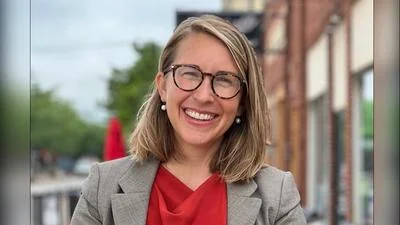Many teachers and families believe that in-person learning is more effective for disabled students who require assistance during school. | Canva
Many teachers and families believe that in-person learning is more effective for disabled students who require assistance during school. | Canva
The Individuals with Disabilities Education Act (IDEA) just reached its 45th anniversary in November, but many have become disappointed by it recently.
The law states that every child with a disability is entitled to a meaningful and inclusive education. The COVID-19 pandemic has increased the frustration, as it's more difficult to tailor to students with learning challenges. People like the Onyx family in Oakland County have described face-to-face learning as "indispensable," according to The Mackinac Center for Public Policy. Both of Stephanie Onyx's children needed aides and therapies that weren't available once they were forced to learn remotely.
Due to similar situations in other families, states have been on the receiving end on a class-action lawsuit from parents who want the option of in-person learning. Texas and Ohio have given out direct education grants to families of disabled students.
In Michigan, about half of the school districts offer in-person options for disabled students. In 2018 Michigan was the only state that received a low rating from the U.S. Department of Education for the level of services that were provided to students with disabilities. The levels of service have not since improved, as disabled students are still scoring below average in reading and math.
In 2019, 10.9% of charter public school students qualified for an Individualized Education Program because of special learning needs, in comparison to 12.7% in district schools. Wayne County can be the one to blame for the majority of the disparity.
"The Wayne County Regional Educational Service Agency, the ISD (independent school district) that covers Detroit Public Schools and 32 other districts, operates center-based programs for students with 'more severe impairments.' These programs, housed only in conventional districts, receive access to millions in Act 18 local millage funding and likely contribute to the districts enrolling more special-needs students than charter schools in the county," according to The Mackinac Center.
There isn't a single option that can address everyone's learning needs, but Michigan must step up to attempt to solve this problem.




 Alerts Sign-up
Alerts Sign-up